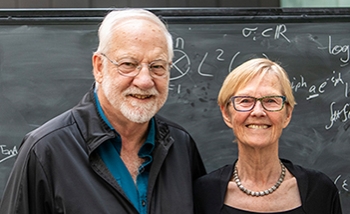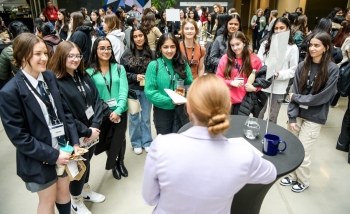James Weatherall was a physicist before he became a philosopher. Today, he is a professor of logic and philosophy of science at University of California, Irvine.
His day job probes some tough issues. How, exactly, does physics fit with finance? What lessons (if any) did we learn from the 2008 economic crash? As the world enters a "post-truth" era, should scientists step forward to advocate for science?
When he visited Perimeter Institute in February 2017 to deliver a public lecture on the physics of finance, he sat down for an interview with Inside the Perimeter.
In the clip above, Weatherall explains how money, physics, and the complexity of math affect the global economy.
Weatherall's next big project is to work with fellow philosopher Cailin O'Connor to explore the role and value of evidence in a "post-truth" world. In the clip below, he discusses why evidence matters, how it has fallen out of favour, and whether it's a scientist's role to advocate for science.
Below is Weatherall's full Perimeter Public Lecture, "The Physics of Wall Street."
About PI
Perimeter Institute is the world’s largest research hub devoted to theoretical physics. The independent Institute was founded in 1999 to foster breakthroughs in the fundamental understanding of our universe, from the smallest particles to the entire cosmos. Research at Perimeter is motivated by the understanding that fundamental science advances human knowledge and catalyzes innovation, and that today’s theoretical physics is tomorrow’s technology. Located in the Region of Waterloo, the not-for-profit Institute is a unique public-private endeavour, including the Governments of Ontario and Canada, that enables cutting-edge research, trains the next generation of scientific pioneers, and shares the power of physics through award-winning educational outreach and public engagement.
You might be interested in


